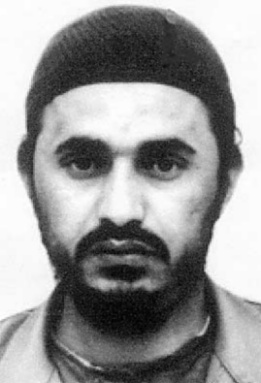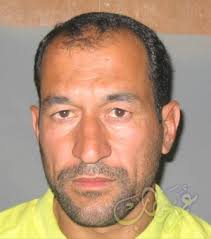Related Research Articles

The Canal Hotel bombing was a suicide truck bombing in Baghdad, Iraq, during the afternoon of 19 August 2003. It killed 23 people, including the United Nations' Special Representative in Iraq Sérgio Vieira de Mello, and wounded over 100, including human rights lawyer and political activist Amin Mekki Medani. The blast targeted the United Nations Assistance Mission in Iraq created just five days earlier. The 19 August bombing resulted in the withdrawal within weeks of most of the 600 UN staff members from Iraq. These events were to have a profound and lasting impact on the UN's security practices globally.

Jamaat Ansar al-Sunnah, also known as Jaish Ansar al-Sunna, Ali ibn Abi Talib Battalion or simply as Ansar al-Sunnah was an Iraqi Sunni insurgent group that fought against US troops and their local allies during the Iraq War. The group was primarily based in northern and central Iraq, and included mostly Iraqi fighters. In 2007, it split; with its Kurdish members pledging allegiance to Ansar al-Islam, and its Arab members creating a group called Ansar al-Sunnah Shariah Committee, before changing its name to Ansar al-Ahlu Sunnah in 2011.

Jama'at al-Tawhid wal-Jihad, abbreviated as JTJ or Jama'at, was a Salafi jihadist militant group. It was founded in Jordan in 1999, and was led by Jordanian national Abu Musab al-Zarqawi for the entirety of its existence. During the Iraqi insurgency (2003–11), the group became a decentralized network with foreign fighters with a considerable Iraqi membership.
Abu Anas al-Shami was a senior leader in the Jama'at al-Tawhid wal Jihad militant group during the Iraq War. He was a Palestinian from Tulkarm city in the West Bank, born in Kuwait in 1969.
Abu Muhammad al-Maqdisi, or more fully Abu Muhammad Assem al-Maqdisi, is the assumed name of Assem ibn Muhammad ibn Tahir al-Barqawi, an Islamist Jordanian-Palestinian writer. A Salafi jihadi ideologue, he has popularized many of the most common themes of radical Islam today, like the theological impetus given to the notion of Al Wala' Wal Bara', being the first to declare the Saudi royal family to be apostates or considering democracy a religion, and thus whoever believes in it to be an apostate, but he is best known as the spiritual mentor of Jordanian jihadist Abu Musab al-Zarqawi, the initial leader of al-Qaeda in Iraq. However, an ideological and methodical split emerged between Maqdisi and Zarqawi in 2004 due to Zarqawi's takfeer proclamations towards all the Shia populations in Iraq. Maqdisi opted for a more cautious approach towards targeted Shia killings, attempting to stop Zarqawi's radical ideological movement before Zarqawi's methods become counter-productive.
Abdallah Najim Abdallah Muhammad al-Juwari, also known as Abdullah Abu Azzam al-Iraqi ( AH-boo ə-ZAM;, was a senior leader in Al-Qaeda in Iraq.

The Mujahideen Shura Council, was an umbrella organization of at least six Sunni Islamist insurgent groups taking part in the Iraqi insurgency against U.S.-led Coalition and Iraqi forces. The groups included in the MSC were: Tanzim Qaidat al-Jihad fi Bilad al-Rafidayn, Jaish al-Ta'ifa al-Mansurah, Katbiyan Ansar Al-Tawhid wal Sunnah, Saraya al-Jihad Group, al-Ghuraba Brigades, and al-Ahwal Brigades. In mid-October 2006, a statement was released, stating that the Mujahideen Shura Council had been disbanded, and was replaced by the Islamic State of Iraq.

Abu Musab al-Zarqawi, born Ahmad Fadeel al-Nazal al-Khalayleh, was a Jordanian jihadist who ran a terrorist training camp in Afghanistan. He became known after going to Iraq and being responsible for a series of bombings, beheadings, and attacks during the Iraq War, reportedly "turning an insurgency against US troops" in Iraq "into a Shia–Sunni civil war". He was sometimes known by his supporters as the "Sheikh of the slaughterers".

Tanzim Qaidat al-Jihad fi Bilad al-Rafidayn, more commonly known as Al-Qaeda in Iraq, was a Salafi jihadist organization affiliated with Al-Qaeda. It was founded on 17 October 2004, and was led by Abu Musab al-Zarqawi and Abu Ayyub al-Masri until its disbandment on 15 October 2006.
30 September 2004 Baghdad bombing was a series of bombings targeting U.S. soldiers handing out sweets to the Iraqi children at the celebration during the opening of a water treatment plant in the Amil District of Baghdad. The bombings killed at least 41, including 35 children, and wounded 131, including 10 U.S. soldiers.

It is believed that members of Al-Qaeda are hiding along the border of Afghanistan and northwest sections of Pakistan. In Iraq, elements loosely associated with al-Qaeda, in the Jama'at al-Tawhid wal-Jihad organization commanded by Abu Musab al-Zarqawi, have played a key role in the War in Iraq.
An individual named Shadi Abdalla has been described as an associate of Abu Musab al Zarqawi, the leader of al Qaeda in Iraq, and as having knowledge of some of al Qaeda's most important Afghan training camps.

Jahafil Al-Tawhid Wal-Jihad fi Filastin is a Sunni Islamist Palestinian group in the Gaza Strip and the Sinai peninsula, and is the branch of al-Qaeda in Gaza. The establishment of the group was publicly announced on 6 November 2008, with communiqués vowing loyalty to al-Qaeda, after having "received the messages of Osama bin Laden and Ayman Al-Zawahiri." Various forms of the "Tawhid al-Jihad" label have appeared in relation to developments in the Gaza Strip. The size of the group is not publicly known.
Takfir wal-Hijra, was the popular name given to a radical Islamist group Jama'at al-Muslimin founded by Shukri Mustafa which emerged in Egypt in the 1960s as an offshoot of the Muslim Brotherhood. Although the group was crushed by Egyptian security forces after it murdered an Islamic scholar and former government minister in 1977, it is said to have "left an enduring legacy" taken up by some Islamist radicals in "subsequent years and decades."
Hisham Al Saedni, also known by the nom de guerre Abu Walid al-Maqdisi, was a Palestinian military activist and a Muslim leader and founding member of the Mujahideen Shura Council in the Environs of Jerusalem in the Gaza Strip and he was also leader of al-Tawhid wa al-Jihad, a branch of al-Qaeda in Gaza.
Fadel Ahmed Abdullah al-Hiyali, better known by his noms de guerre Abu Muslim al-Turkmani, Haji Mutazz, or Abu Mutaz al-Qurashi, was the Islamic State of Iraq and the Levant (ISIL) governor for territories held by the organization in Iraq. He was considered the ISIL second-in-command ; he played a political role of overseeing the local councils and a military role that includes directing operations against opponents of ISIL. His names were also spelt Fadhil Ahmad al-Hayali, and Hajji Mutazz.

Adnan Ismail Najm al-Bilawi Al-Dulaimi, better known by the nom de guerre Abu Abdulrahman al-Bilawi al-Anbari, was a top commander in the Islamic State and the head of its Military Council, prior to his killing by Iraqi security forces on 4 June 2014.
Khalid Mustafa Khalifa al-Aruri, known as Abu al-Qassam, was a Palestinian-Jordanian Islamic militant and a member of al-Qaeda who was the leader of the Guardians of Religion Organization.
Sari Muhammad Hasan Shihab, known as Abu Khalid al-Muhandis, was a Jordanian national born in 1973 who was a member of the different groups that were founded by Abu Musab al-Zarqawi. He was one of the initial members of the Jama'at al-Tawhid wal-Jihad organization which was founded by al-Zarqawi in 1999. Shihab was also known as Abu Safar and Suhayb. Shihab was one of five al-Qaeda leaders who were released by Iran in March 2015 in exchange for a kidnapped Iranian diplomat in Yemen. The other four were Saif al-Adel, Abdullah Ahmed Abdullah, Abu Khayr al-Masri and Khalid al-Aruri.
Muhammad Yusuf Uthman Abd al Salam (2014–1956) was the founder of Jund al-Aqsa, a Salafist jihadist group active in the Syrian Civil War. He is also commonly referred to by his nom de guerre Abu Abdulaziz al-Qatari. He was a Jordanian citizen of Palestinian origin who lived in Qatar.
References
- 1 2 3 4 5 6 7 8 9 10 11 12 13 14 15 16 17 18 19 20 21 22 Steinberg, Guido (2013). "Two Hamburg Cells: A History of Jihadist Terrorism in Germany". German Jihad: On the Internationalization of Islamist Terrorism. Columbia studies in terrorism and irregular warfare. New York, NY: Columbia University Press. pp. 44–48. ISBN 978-0-231-50053-1.
- 1 2 3 4 Sorrells, Niels C. (2008). "Taps and Terrorism: A German Approach?". Intelligence and National Security. 23 (2): 181–182. doi:10.1080/02684520801977295. ISSN 0268-4527.
- 1 2 Steinberg, G. (2008). The threat of jihadist terrorism in Germany. Elcano Newsletter, (50), 6.
- ↑ Nesser, Petter (2008-04-09). "How did Europe's Global Jihadis Obtain Training for their Militant Causes?". Terrorism and Political Violence. 20 (2): 239. doi:10.1080/09546550801920758. ISSN 0954-6553.